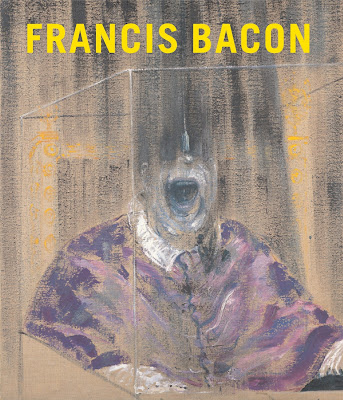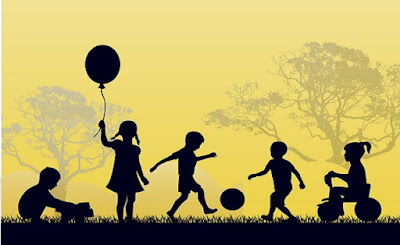SUGGESTION FOR XI ENGLSH-B EXAMINATION 2022
FM: 80
1. Select the correct answer. 1x5=5
a) How old was Leela?— i) 5 ii) 6 iii) 7 iv) 8
b) At last, Jimmy settled in—i) Springfield ii) Elomre iii) London iv) Little Rock
c) Who discovered the missing chain in tamarind pot?—i) Leela ii) Sivasanker iii) Sidda iv) Mother
d) In jail, Jimmy was—i) cooking ii) sleeping iii) repairing shoe iv) playing
e) Who struck on Mohan’s face—i) Bill ii) Jim iii) Coolie iv) Bearer
2. Answer any five: 1x5=5
a) Why did the inspector become furious at Sivasanker?
b) When does Sidda touch the moon?
c) Why was Jimmy in jail?
d) Who was Mr. Adams?
e) Why did Lachmi not travel with Mohan?
f) What reason did Jimmy tell the hotel Clerk for his coming?
g) What was Sidda given for his job?
3. Answer any two: 5x2=10
a) How was Sidda treated in Leela's house?
b) What changes came in Jimmy's life in Elmore?
c) How did Mohan enjoy his train journey?
d) How did Leela take class of Sidda? How did the class end?
e) Whom did Jimmy wrote a letter? What did he write?
4. Select the correct answer. 1x5=5
a) The wind first met—i) ship ii) mariners iii) mist iv) bird
b) Leafy banners mean—i) forests ii) deep sea iii) branches full of leaf iv) boughs
c) The moon was—i) half ii) full iii) silvery iv) golden.
d) The lovers crosses—i) 1 ii) 2 iii) 3 iv) 4 fields
e) Who ignores the beauty of London will be—i) dull ii) clever iii) busy iv) nothing.
5. Answer any five: 1x5=5
a) How was the sea-beach?
b) Where was the moon?
c) Where did the beloved live?
d) When was the poet crossing the Westminster bridge?
e) Which river is mentioned in the poem “Upon Westminster Bridge”?
f) Why did the wind tell the corn to bow down?
g) What did the wind say to the wood-bird?
6. Answer any two: 5x2=10
a) Describe the journey of the lover in Meeting at Night.
b) What role did the wind take in the morning?
c) "This City now doth like a garment wear"- Describe the city.
d) Bring out the significance of the title of the poem "Meeting at Night".
e) With whom did the wind meet in the morning? What did the wind tell the corns and the dead persons? Why did it sigh at churchyard?
7. Select the correct answer. (any five) 1x5=5
a) Duncan was killed by—i) Macbeth ii) Macduff iii) Lady Macbeth iv) Malcolm
b) Macduff was thane of --i) Cawdor ii) Glamis iii) Fife iv) Ross
c) The son of Banquo was—i) Macbeth ii) Macduff iii) Fleance iv) Malcolm
d) Emilia was the wife of—i) Cassio ii) Othello iii) Iago iv) Roderigo
e) Duke senior was banished in—i)Forest of Arden ii) birnam wood iii) jail iv)none
f) Iago was—i)learned ii) good at heart iii) crafty iv) religious
g) Oliver married—i) Rosalind ii) Desdemona iii) Celia iv) Olivia
h) Whom did Orlando defeat in the wrestling?—i)Charles ii) Oliver iii)Duke iv)none
8. Answer any one: 5x1=5
a) Character of Macbeth?
b) Why did Lady Macbeth fail to Kill Duncan? Why was Macbeth hesitating to kill Duncan?
c) How did the handkerchief take a role in Othello?
d) What charges did Brabantio bring against Othello? How did Othello get rid of them?
e) Describe the banquet scene in Macbeth.
9. A. Do as directed. 1x7 =7
a) Bring him back. (VC)
b) Jimmy said to warden, "I never went to the Springfield in my life." (NC)
c) Sidda closed his eyes and threw the ball up. (Complex)
d) Jimmy got released from the jail. He went straight to a restaurant. (Make it simple using participle)
e) No one rejected his proposal. (Affirmative)
f) Jimmy glance at her face. (Use noun form of 'glance')
g) The mirror was obviously made in India. (Split)
B. Fill in the blanks with article and preposition. ½ x 6=3
The train steamed____________, Lachmi found herself facing__________ almost empty inter-class zenana compartment next__________ the guard’s van, __________ the tail end __________ the train. The rest of _______ train was packed.
10. Write a paragraph on “Good and Bad Effect of Internet” 10
OR
Write a story on the basis of following points- 10
A poor farmer—got a goose—laid golden eggs every day—became rich—wanted more more—became greedy—cut the belly of goose to get all golden eggs together—found just one egg—goose died—lost all.
11. You want to sell your house. Now write an advertisement. 5
OR
A writer is seeking an assistant. Now write an advertisement. 5
12. A renowned tour agency is going to make a trip to Vizag. Now write a commercial leaflet for them. 5
OR
Prepare a commercial leaflet for a coaching Centre / company who are going to offer new courses/ going to open a new showroom. 5























